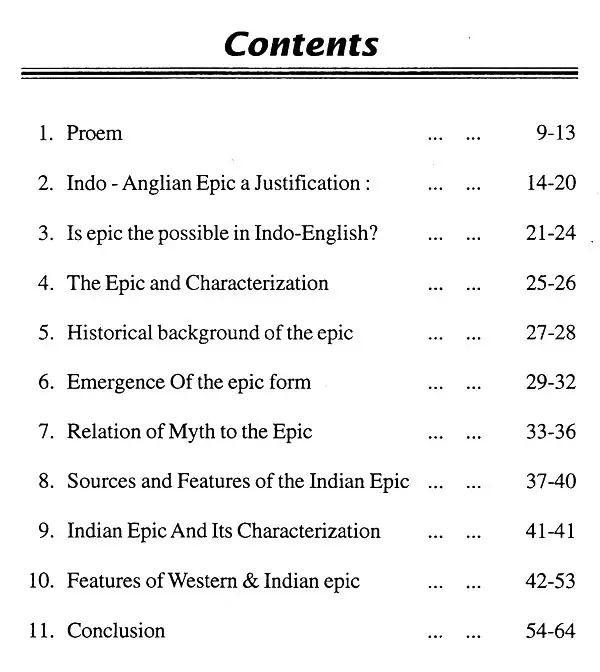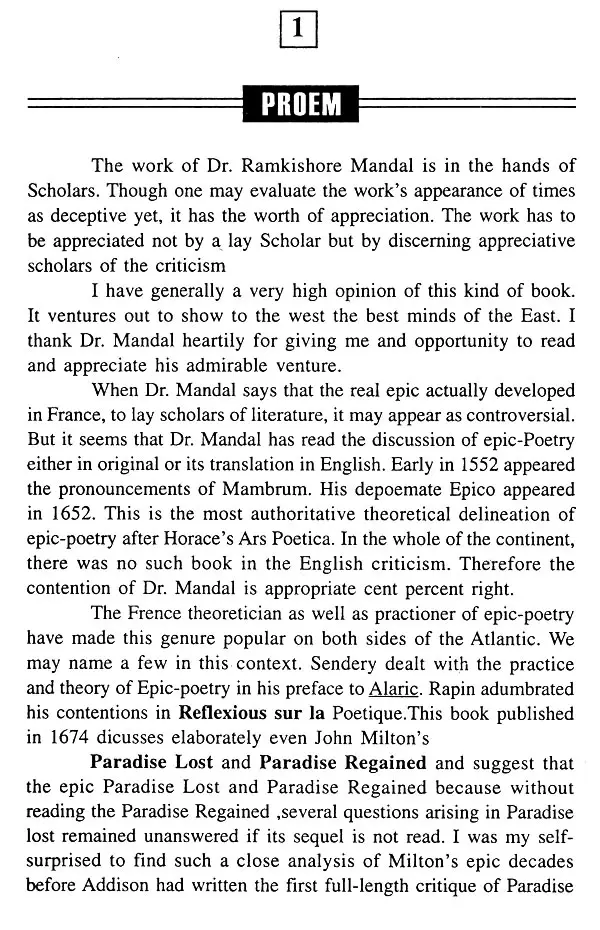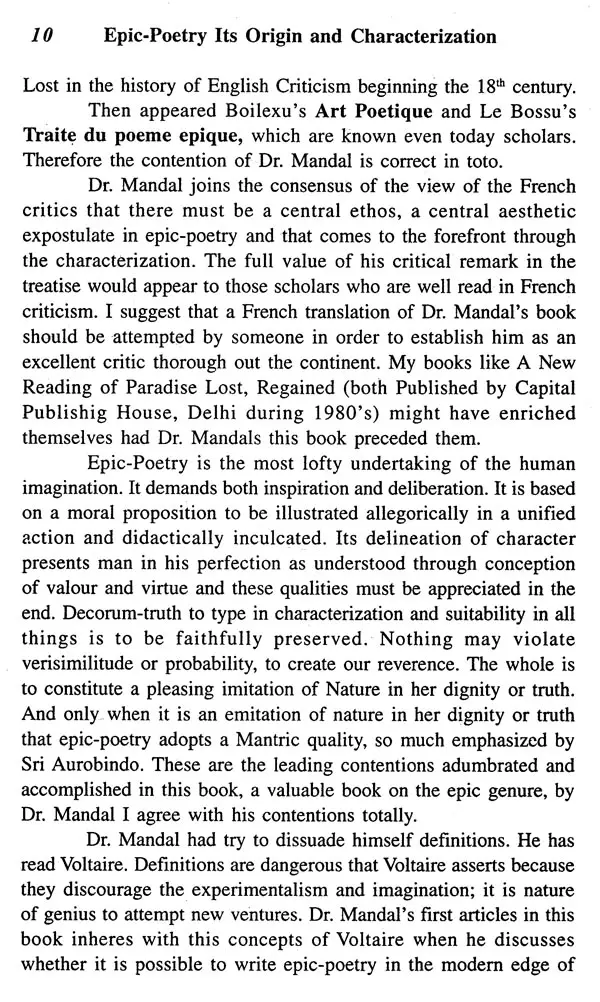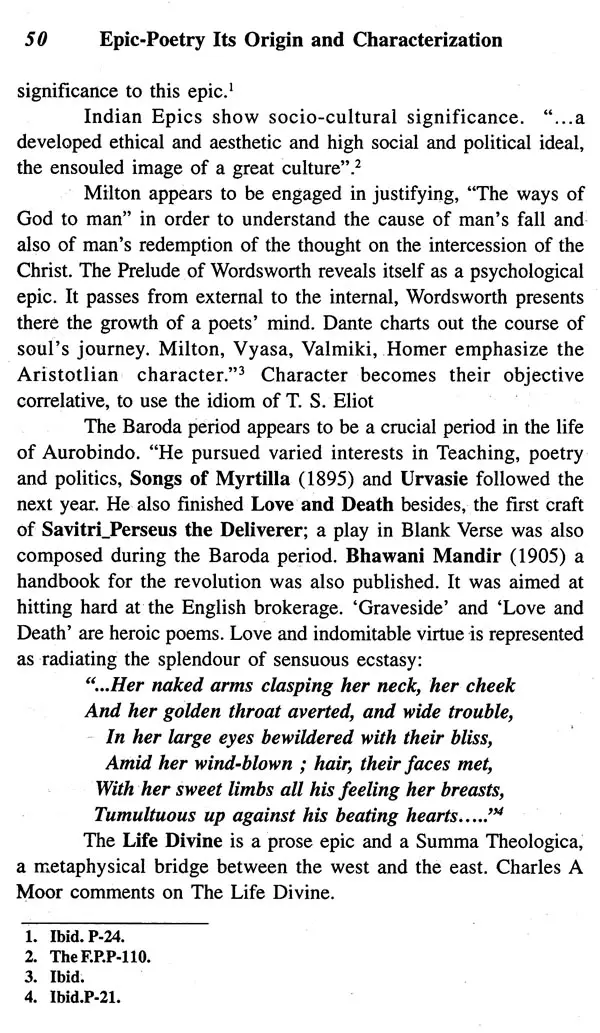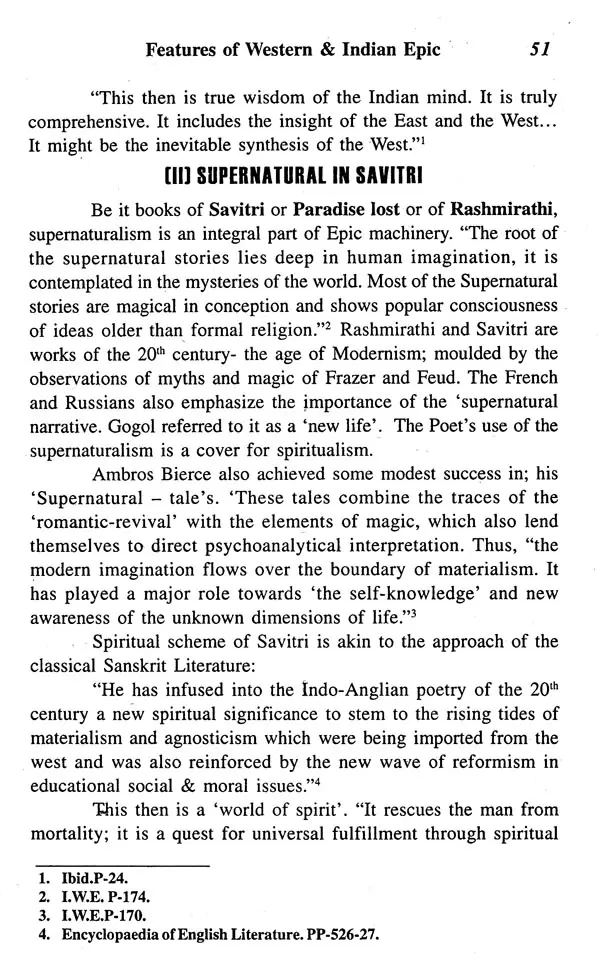
Epic-Poetry Its Origin and Characterization
Book Specification
| Item Code: | UAE189 |
| Author: | R. K. Mandal |
| Publisher: | KALA PRAKASHAN |
| Language: | English |
| Edition: | 2006 |
| ISBN: | 8187566280 |
| Pages: | 64 |
| Cover: | HARDCOVER |
| Other Details | 9.00 X 6.00 inch |
| Weight | 230 gm |
Book Description
The book accounts for an elaborate critical estimate of the poetic principles of the East and the West. It attempts to solve the enigmas arising out of the entertainment value of the poetic art, within for us of the interpretation gathered from the western eminent critics. It finds out the way of the enjoyments and evaluation of an art within the perspectives of realistic, subjective and objective approaches. It also enumerates the feeling of the poet centered on the creation of English-poetry and Indo-English poetry as well as. In order to satiate the audience both with sensory and aesthetic pleasure. It explains pleasure as referential and non-referential, in its view the referential in platonic, whereas non-referential is symbolic which is often entitled as antiplatonic. It also records Sri Aurobindo’s view of poetry by which, it requires, the growth of the in look of the soul and its use in creating a genuine poetry or the poetry of soul, which is similar in view of Mathew Arnold.
It instructs to apply the same means to creation of the future Indo-English poetry, which would illuminate the spirit in poetry or epic poetry. It also records the positive pronouncement of Sri Aurobindo that the true creator and the true hearer of a verse is the soul, along with the observation of Prof. Regnaud that the final repose from the ancient literature is acquired by non-ideational meditations of an objects. It has equated the western critical words wit with the Pratibha of the ancient seers of India. It has applied the Dhvani theory of Anand Vardhan and has evaluated Grecian Urn of Keats as a sublime poetry. It presents a synaesthesis of the East and the West poetic principles and concludes that the Eastern theory and might also be applied for the appreciation of the English and the Indo-English poetry as well as.
The author Prof. R. K. Mandal took birth in 1945 at a village Adalpur, Madhubani, in the heredity of a teacher and gradually developed his drive towards study of the spiritualism. He post graduated from the Bihar University and acquired Ph.D. Degree from LNMU Darbhanga.
He joined as a Lecturer of English in 1970 in K.S.D.S.U. Darbhanga. Presently, he is Prof. of English in K.S.D.S.U. He also assumed over the offices of the executives in K.S.D.S.U., Darbhanga and worked as a senator and member of Finance committee, a statutory body of the university. As a social worker, he took part in various programmes of social reformations staged time to time in villages, districts and state level. After a wide study for more than two decades of the philosophy of Sri Aurobindo’s Indo-English Literature and spiritualism, he authored Epic-poetry-its origin & characterization, Poetics. East & West : A study in value formation and the Integral View of Life.
